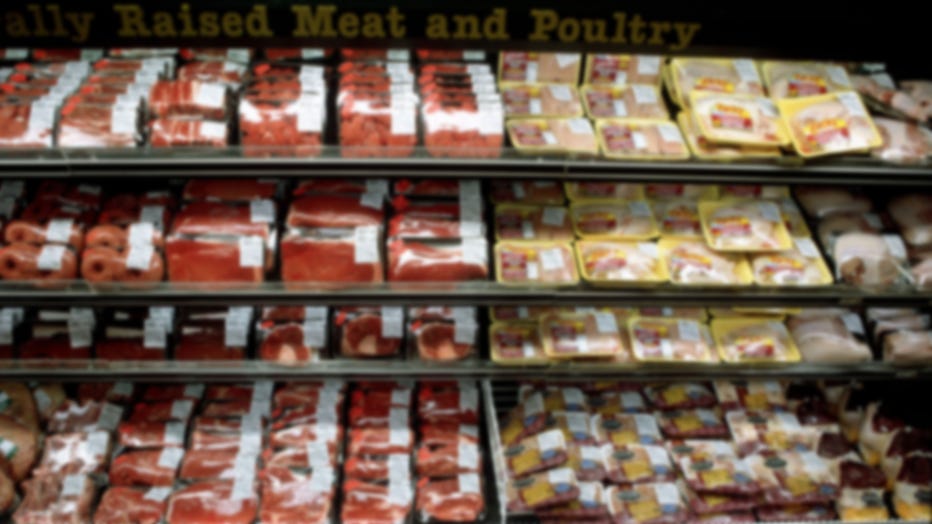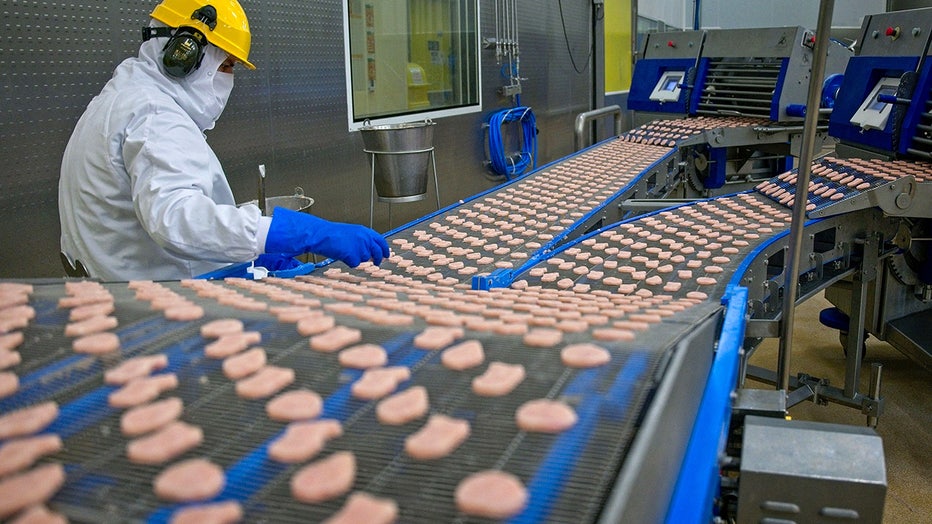Microplastics found in 16 proteins sampled in study, including plant-based alternatives
What are microplastics?
Microplastics are pieces of plastic that measure less than 5 millimeters and these tiny particles are finding their way into our drinking water, food, and even our blood.
A new study found microplastic particles in 88% of protein food samples tested, including three different plant-based meat alternatives.
Based on their findings, researchers at Ocean Conservancy and University of Toronto estimate that American adults could be consuming thousands - if not millions - of microplastics per year from protein alone.
Microplastics, which are incredibly tiny bits of broken-down plastic smaller than a fraction of a grain of rice, have been found everywhere in the environment, from Japanese mountain clouds to your everyday plastic water bottle.
RELATED: A single bottle of water can contain about a quarter million invisible nanoplastic particles
"A startling reminder"

Stock photo of a meat shelf in a grocery store. (Getty Images)
"This is a startling reminder of just how prolific plastic pollution has become – humans live on land and yet seafood samples are just as likely to be contaminated with plastics as are terrestrial derived proteins," said study co-author Dr. Britta Baechler, a marine biologist and Associate Director of Plastics Science at Ocean Conservancy.
While there is a general unease about the unknown dangers of these fine plastic particles, not enough information is available yet to determine how consuming them affects human health.
"Our work is a call to action to reduce plastic pollution in its many forms to ensure a safe and healthy food supply for all consumers," said fellow co-author and Ocean Conservancy’s Chief Scientist, Dr. George Leonard.
Scientists are also calling for more research to be done to determine where these microplastics are coming from.

File: A food factory employee checks chicken nuggets before being breaded coming out the conveyor belt. (Photo by GUILLAUME SOUVANT/AFP via Getty Images)
RELATED: Evidence of microplastics found in clouds above mountains in Japan, study says
The study found evidence that food processing is a likely source of microplastic contamination, as highly processed protein products (like fish sticks, chicken nuggets, tofu, and plant-based burgers, among others) contained significantly more microplastics per gram than minimally processed products (items like packaged wild Alaska pollock, raw chicken breast, and others), according to a press release.
But researchers noted food processing is not the only source of microplastic contamination.
The most commonly identified microplastics were fibers, about 44%. About a third (30%) found were plastic fragments.
What proteins were tested?
Protein types included in the study included:
- Store-purchased breaded shrimp
- Minced pollock
- Fish sticks
- White Gulf shrimp (headless/shell-on)
- Key West pink shrimp (headless/shell-on)
- Alaska Pollock fillets (skinless)
- Chicken nuggets
- Top sirloin steaks
- Pork loin chops
- Chicken breasts
- Plant-based nuggets
- Plant-based fish sticks
- Plant-based ground beef
- Tofu blocks
The study was led by researchers at Ocean Conservancy and the University of Toronto and published Jan. 8, 2024 in the journal Environmental Pollution.
This story was reported from Detroit.

